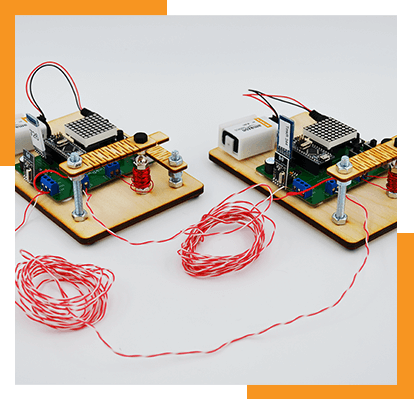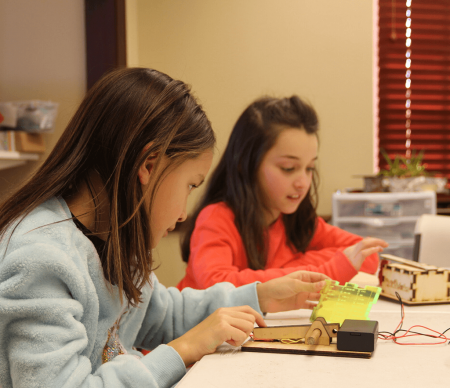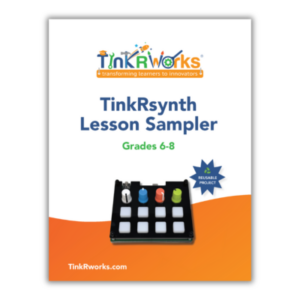Morse Coding
GRADES 6-8

Project Description
Explore the history of human communication with programming. Students build a project that employs two methods of communication — a traditional wired telegraph and a modern-day wireless texting device that allows students to communicate with each other in the classroom through Morse Code. Along the way, they perform experiments and learn about electricity and electronics. They also learn about analog versus digital communication, wireless technology, and radio waves and apply these lessons when programming their projects.

Key Concepts
AC, Amplitude, Amplitude modulation (AM), Analog, Arduino, ASCII, Binary, Boolean values, Circuits, Circuit boards, Conditionals, Conductors, Current, Digital, DC, Electromagnet, Electromagnetic waves, Electricity, Electrons, Frequency, Frequency modulation (FM), Functions, Insulators, LEDs, Magnetic field, Morse Code, PCB, Signal modulation, Signal reliability, State machines, Subroutines, Telegraph, Voltage, Wavelength, Wireless
Essential Question
How can we use technology to create a two-way communication device?
Summary of Standards
GRADES 6-8
Computer Science Teaching Association Standards (CSTA)
Students will model how hardware and software work together; create clearly named variables that represent different data types, design and develop programs that include nested loops and compound conditionals, and model how data can be transmitted across networks.
Common Core ELA
Students will learn new content specific vocabulary, participate in collaborative group discussions, and respond to questions related to the topic of discussion.
Next Generation Science Standards (NGSS)
Students will determine the factors that affect the strength of electric and magnetic forces; use mathematical representations to describe a simple model for waves; and integrate qualitative scientific and technical information to compare digitalized signals and analog signals.
Texas Essential Knowledge and Skills (TEKS)
Students will participate in student-led discussions by eliciting and considering suggestions from other group members, taking notes, and identifying points of agreement and disagreement. They will listen actively to interpret a message, ask clarifying questions, and respond appropriately. They will synthesize information to create new understanding.
REQUEST A QUOTE
Fill out the form to request a quote. A School Partner will follow up and help answer any questions.
Or Call Now

